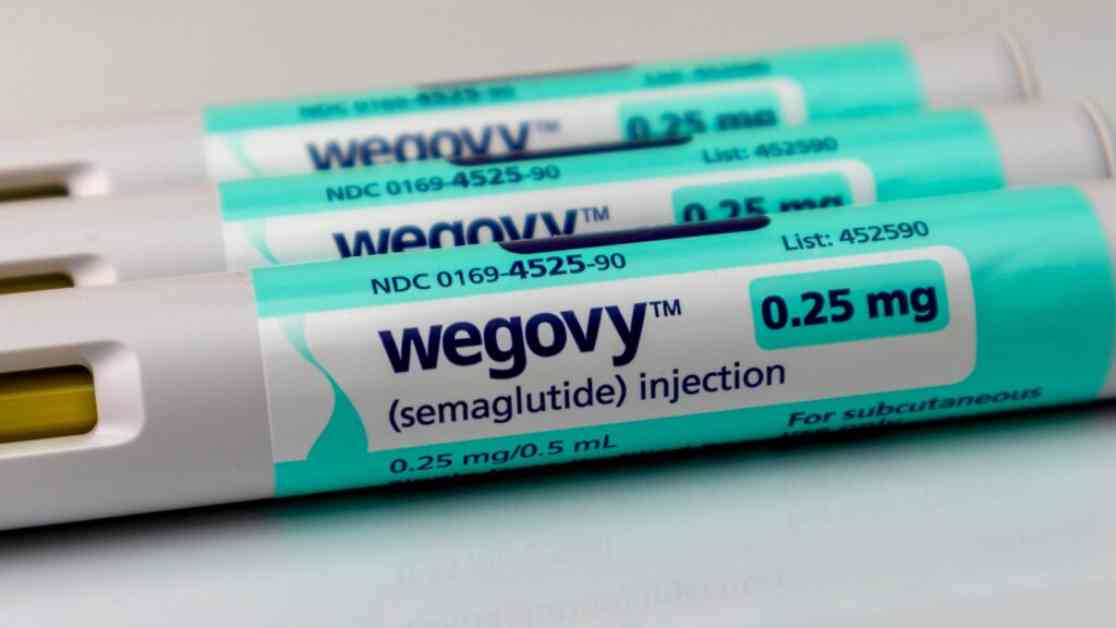High-Dose Wegovy Trial Unveils Promising Results
In a groundbreaking clinical trial conducted by Novo Nordisk, a high dose of their obesity drug Wegovy showed significant potential for weight loss among patients with obesity. Despite this promising outcome, the study fell short of surpassing the weight loss achieved by competitor Eli Lilly’s Zepbound, raising questions about the drug’s efficacy in comparison to existing treatments.
Key Findings from the 72-Week Study
During the 72-week study, participants who received a 7.2-milligram dose of Wegovy experienced an impressive weight loss of 18.7%, regardless of their adherence to the treatment regimen. This result demonstrated a substantial improvement compared to individuals taking the currently approved 2.4-mg dose, who achieved a 15.6% weight loss. In contrast, those in the placebo group only saw a 3.9% reduction in weight over the same period, highlighting the efficacy of Wegovy in promoting weight loss.
Zepbound’s Superior Performance
Despite Wegovy’s promising results, it fell short of matching the weight loss achieved by Zepbound in its pivotal trial. Zepbound, developed by Eli Lilly, led to a remarkable 20.9% weight loss over the 72-week study period, outperforming Wegovy in this aspect. This comparison underscores the need for further research and development to enhance Wegovy’s effectiveness and competitiveness in the obesity treatment landscape.
Implications for the Pharma Industry
The outcomes of Novo Nordisk’s high-dose Wegovy trial have significant implications for the pharmaceutical industry, particularly in the realm of obesity treatment. As companies strive to innovate and provide effective solutions for individuals struggling with obesity, the competitive landscape continues to evolve. The results of this study shed light on the potential of Wegovy as a viable treatment option, while also emphasizing the importance of continued research and development to address the complex challenges associated with obesity management.
—
As a journalist covering this groundbreaking trial, I was struck by the contrasting outcomes of the Wegovy and Zepbound studies. While Wegovy showed promising results in promoting weight loss among patients with obesity, Zepbound’s superior performance raised intriguing questions about the comparative efficacy of these drugs. This disparity highlights the dynamic nature of the pharmaceutical industry and the ongoing quest for innovative solutions to tackle complex health issues like obesity.
In a world where obesity rates continue to rise, advancements in drug development offer hope for individuals seeking effective treatments. The journey to combat obesity is multifaceted, requiring a blend of scientific innovation, clinical research, and patient-centered care. As we navigate this evolving landscape, it’s essential to celebrate progress, acknowledge challenges, and remain committed to advancing the field of obesity treatment for the benefit of all individuals affected by this global health issue.

















